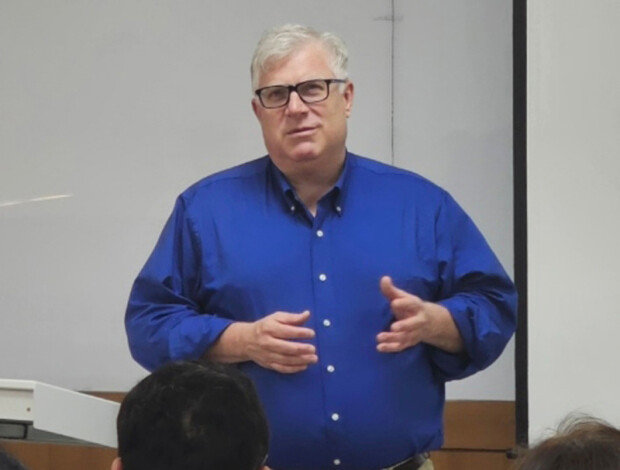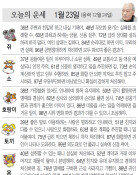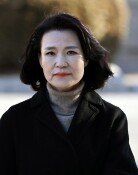'Korean Buddhism values impartial and deep awakening'
'Korean Buddhism values impartial and deep awakening'
Posted June. 08, 2023 09:05,
Updated June. 08, 2023 09:05

“The beauty of Korean Buddhism lies in placing the same value on contemplation and lessons learned in the holy books. No wonder it encompasses a wide and deep range of teaching and awakening.”
A special lecture was given last Tuesday at Dongguk University in central Seoul to share global views of classical texts and literature centering on “The Tale of Choe Chi-won.” Professor Richard McBride of the Department of Asian & Near Eastern Languages at Brigham Young University – where he teaches Korean and Buddhist studies – is one of the most outstanding scholars in the international community of Korean studies. He said, “Korean studies tend to focus primarily on famous figures and historical events,” hoping that the discipline will have a broader range of research.
―What brought you to Korean studies?
“Back in 1988, when I first came to South Korea as a missionary, I lived in Busan and nearby areas. It was when I learned Shilla culture, which came across to me as an incredibly wonderful and unbelievable world. Returning to the United States, I double majored in the Korean language in the Department of Asian Studies. I continued studying Korean at the Foreign Language Institute of Yonsei University starting in 1994 because it was my goal to understand Korea and Korean culture better. Despite being a management major initially, I was strongly attracted to Korean studies, leading me to get a doctoral degree in Buddhist faith and Hwa Yen Thoughts. Indeed, I am making a living thanks to Korea.”
―Even Koreans are fragmentally aware of Choe Chi-won.
“‘The Tale of Choe Chi-won,’ a novel written in Chinese letters, talks about the bizarre encounters of Choe Chi-won, referred to as a genius during the Shilla era, and ghosts. It intrigues me because it provides a window into the perspective of Shilla people and contemporary Chinese tribes. China was already famous for many ghost stories, but he took further steps and produced a more varied and intriguing interpretation based on the existing stories. This book helped me better understand Korea and Korean people.”
―What differentiates Korean Buddhism from that practiced in other countries?
“In Buddhist belief, you reach the state of subitism where you jump to a quick enlightening moment and have nothing to study religion-wise. This way of thinking is still valid among Buddhists. By contrast, Korean Buddhism has emphasized sudden enlightenment and gradual cultivation, which means that you should keep practicing your beliefs to stay enlightened since Chinul Puril Bojo Daesa adopted it during the Goryeo dynasty. That explains why meditation and learning are considered equally important. This balanced viewpoint makes Korean Buddhism wider and deeper.”
―You work to translate Samguk Yusa and Buddhist texts into English.
“Korean studies and Korean history are not as famous as K-pop globally. In addition, Seon, with which you may be familiar, is pronounced as Zen, derived from Japanese, in English. It is a shame that the Japanese term is more widely used than the Korean one, although Korean Buddhism is a way more advanced form than that of Japan. This also explains why I collaborate with other scholars to translate Samguk Yusa in English.”
―Could you add more comments from the perspective of a global scholar who deals with Korean studies?
“I wish that only famous figures and historical events were not dealt with in Korean studies. Many scholars study ‘The Tale of Hong Gil-dong,’ but few look into ‘The Tale of Jeon Woo-chi.’ Likewise, there are lots of research efforts regarding Kim Yu-shin, but few are interested in researching ‘The Life of Mrs. Park,’ a Joseon-era novel written by an unknown author. If researchers’ interests become diversified, it will help further promote Korea across the globe.”
Chin-Ku Lee sys1201@donga.com







